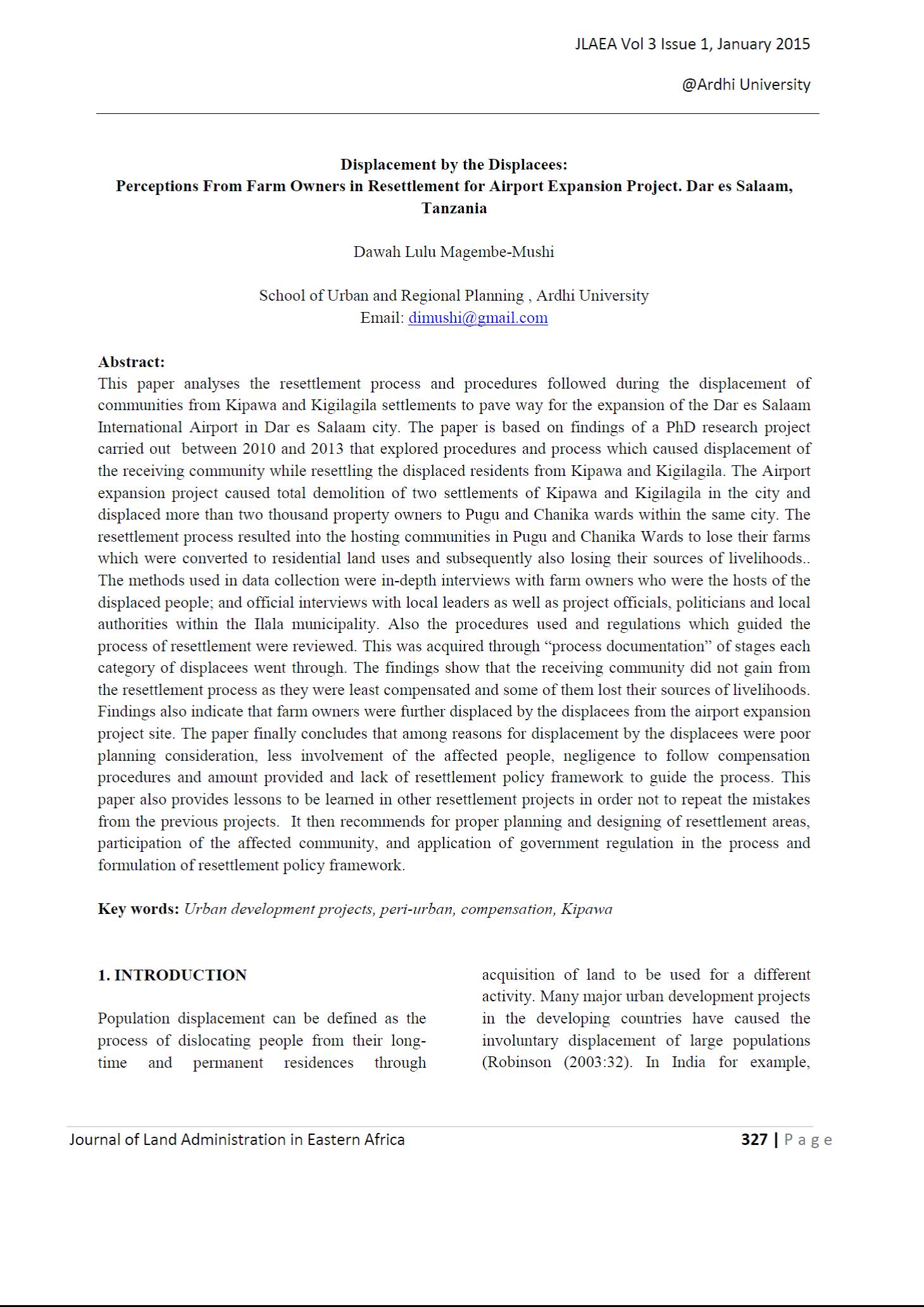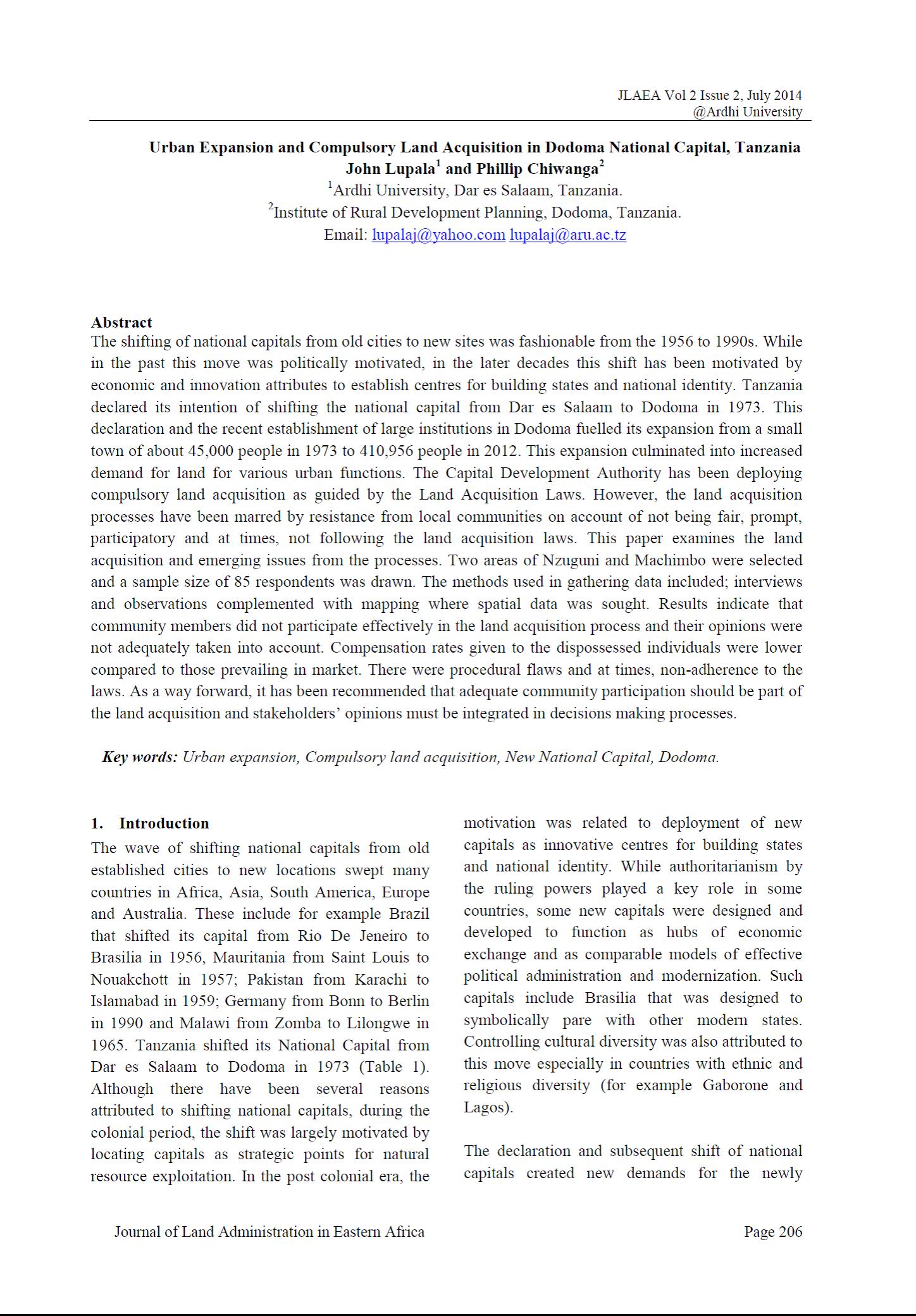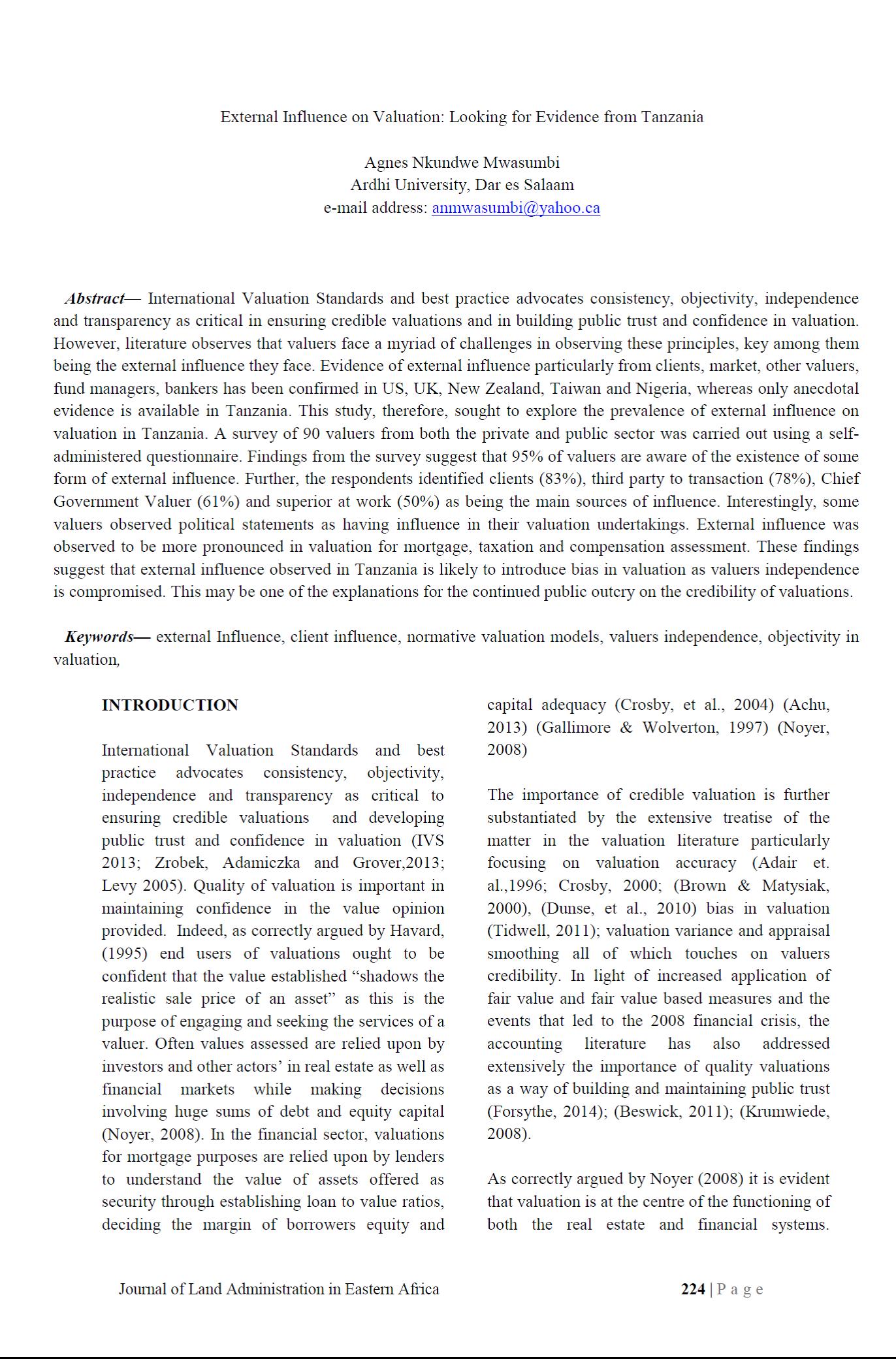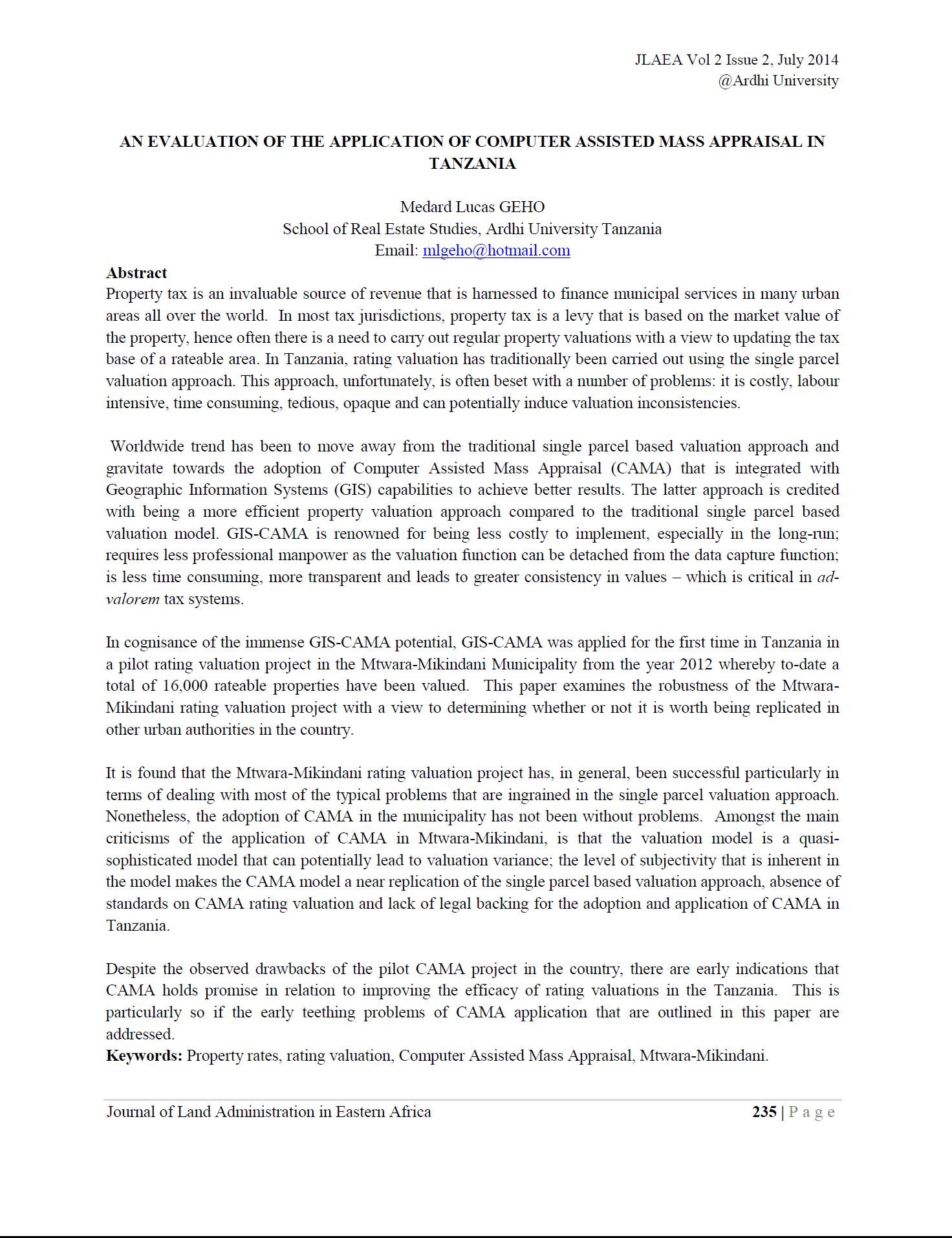Focal point
Location
The Journal of Land Administration in Eastern Africa (JLAEA) is publication of the Land Administration Unit that was set up at ARU in November 2009. JLAEA mirrors the aspirations of the Land Administration Unit at Ardhi University (ARU) whose mission is to ensure quality education and training, research, scientific publications, information dissemination, documentation and public services through integrated cross disciplinary team work in land administration. In November 2011, Ardhi University agreed to a suggestion by the newly established Eastern African Land Administration Network (EALAN) to make the Journal, a property of the network. The EALAN comprises of universities conducting education and training in land administration in Tanzania, Kenya, Uganda, Ethiopia and Rwanda.
Purpose of the Journal
The evolving need for a multi-disciplinary approach in land administration has been well captured by the United Nations institutions drawing experiences from different countries across the globe. In East Africa, land administration is increasingly becoming a crosscutting discipline and no longer limited to the mundane land allocation and use control enforcement processes. It is more diverse and anchored in information communication technology and democratic institutional systems within the land sector. For training institutions such as Ardhi University (ARU), the challenge has been to train the new brand of land administrator who will have to work with the single-discipline trained land sector specialists.
The Journal of Land Administration in Eastern Africa (JLAEA) is publication of the Land Administration Unit that was set up at ARU in November 2009. JLAEA mirrors the aspirations of the Land Administration Unit at ARU whose mission is to ensure quality education and training, research, scientific publications, information dissemination, documentation and public services through integrated cross disciplinary team work in land administration. In November 2011, Ardhi University agreed to a suggestion by the newly established Eastern African Land Administration Network (EALAN) to make the Journal, a property of the network. The EALAN comprises of universities conducting education and training in land administration in Tanzania, Kenya, Uganda, Ethiopia and Rwanda
Members:
Resources
Displaying 16 - 20 of 34Displacement by the Displacees
This paper analyses the resettlement process and procedures followed during the displacement of communities from Kipawa and Kigilagila settlements to pave way for the expansion of the Dar es Salaam International Airport in Dar es Salaam city. The paper is based on findings of a PhD research project carried out between 2010 and 2013 that explored procedures and process which caused displacement of the receiving community while resettling the displaced residents from Kipawa and Kigilagila.
Access to the Land Tenure Administration System in Rwanda and the Impacts of the System on Ordinary Citizens
Over the last decade, the Government of Rwanda (GoR) has introduced several land reforms through formulation and enactment of enabling legal framework, establishment of land administration institutions and implementation of national land tenure regularization. Further, the Land Act of 2013 stipulated that all landholders must formally register their land. To support registration compliance, the GoR decentralized the Land Administration System (LAS) to all District Land Bureaus (DLBs).
Urban Expansion and Compulsory Land Acquisition in Dodoma National Capital, Tanzania
The shifting of national capitals from old cities to new sites was fashionable from the 1956 to 1990s. While in the past this move was politically motivated, in the later decades this shift has been motivated by economic and innovation attributes to establish centres for building states and national identity. Tanzania declared its intention of shifting the national capital from Dar es Salaam to Dodoma in 1973. This declaration and the recent establishment of large institutions in Dodoma fuelled its expansion from a small town of about 45,000 people in 1973 to 410,956 people in 2012.
External Influence on Valuation: Looking for Evidence from Tanzania
— International Valuation Standards and best practice advocates consistency, objectivity, independence and transparency as critical in ensuring credible valuations and in building public trust and confidence in valuation. However, literature observes that valuers face a myriad of challenges in observing these principles, key among them being the external influence they face.
AN EVALUATION OF THE APPLICATION OF COMPUTER ASSISTED MASS APPRAISAL IN TANZANIA
Property tax is an invaluable source of revenue that is harnessed to finance municipal services in many urban areas all over the world. In most tax jurisdictions, property tax is a levy that is based on the market value of the property, hence often there is a need to carry out regular property valuations with a view to updating the tax base of a rateable area. In Tanzania, rating valuation has traditionally been carried out using the single parcel valuation approach.






